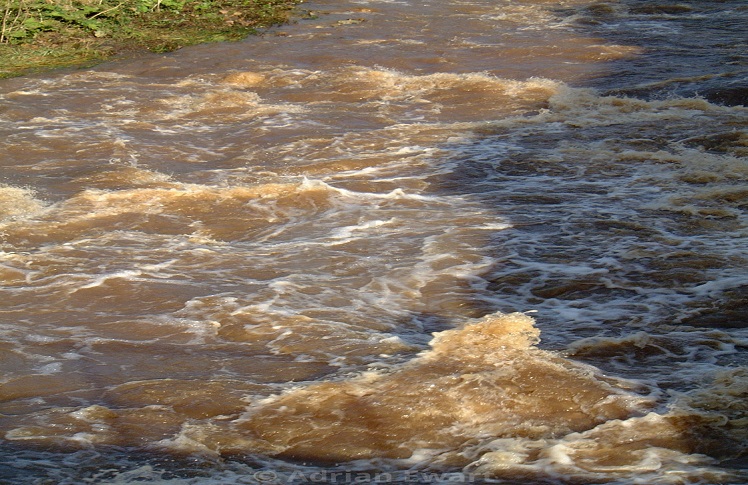
Scientists say simultaneous rains and extreme heat are becoming more frequent, stronger, and more common due to climate change, more so than hot weather.
For every one degree Celsius increase in temperature, the air's ability to bind moisture increases by 6-7 percent.
Warm, moist air therefore provides more water as rain, making a wet-hot extreme more likely, the researchers said in a study published in the journal Earth's Future.
Floods and landslides can become more frequent when heat waves in wet and hot conditions first dry out the soil, reducing its ability to absorb water.
Later rains, they say, have a harder time penetrating the soil and instead run along the ground, causing floods, landslides, and crop damage. They predicted that wet-warm extremes would cover a larger area and be more severe than dry-warm extremes.
While areas such as South Africa, the Amazon, and parts of Europe are expected to be drier, many regions, including the eastern United States, East and South Asia, Australia, and Central Africa, will see more rain, climate models have shown. current emissions scenario.
Areas likely to be affected by such "compound climate extremes" include many densely populated areas that are already prone to geological hazards such as landslides and mudslides, and where many of the world's crops are produced.
"These complex climate extremes have received considerable attention in recent decades because they cause disproportionate pressures on the agricultural, industrial, and ecosystem sectors - much more than individual extreme events alone," said lead researcher Haijiang Wu of China's Northwest A&F University.
The European flood of 2021 is an example of the fact that the world already has humid heat extremes. This summer, record-high temperatures dried out the soil. Soon after heavy rain fell on the dry land, causing massive landslides and flash floods that washed away houses and claimed lives.
Therefore, wet-hot conditions should be considered in climate adaptation strategies.
"If we ignore the threat of humid and warm extremes and don't prepare enough, the impact on water-food-energy security would be immeasurable," Wu said.
Leave a comment: (Your email will not be published)